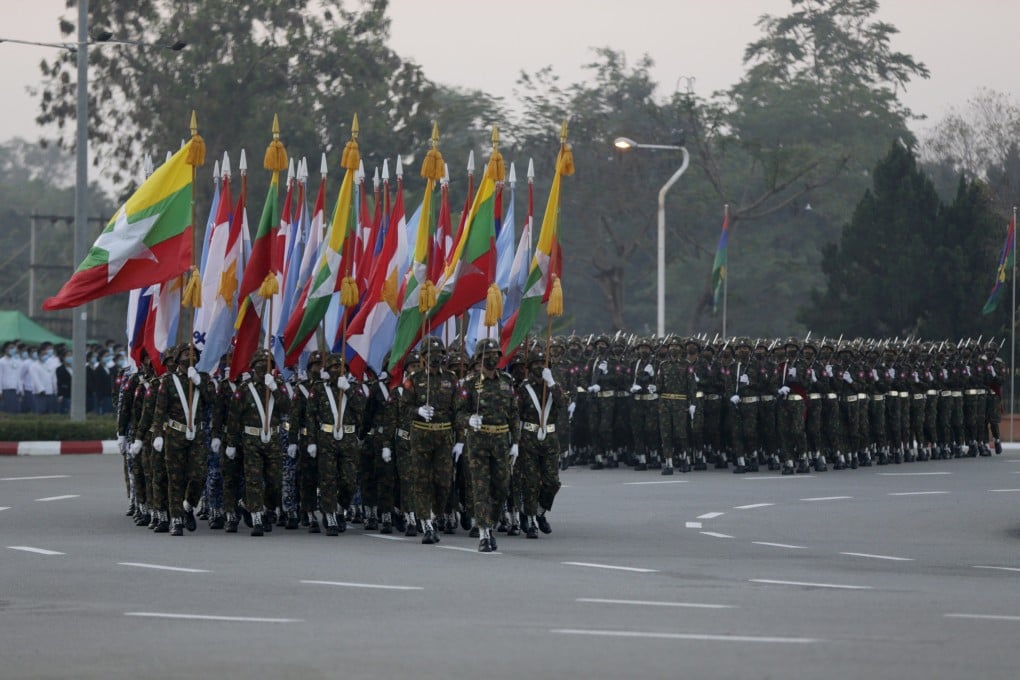Myanmar marks 75th anniversary of historic pact; Union Day parade boycotted by opponents
- Senior General Min Aung Hlaing, head of the military council that seized power last year, appealed for unity and held a colourful parade
- Opponents urged a boycott of the ceremony, describing it as wasteful given the economic challenges faced by Myanmar

The head of Myanmar’s military government appealed Saturday for national unity among the country’s restive ethnic minorities as he presided over a parade marking the 75th anniversary of a historic agreement that sought but failed to ensure harmony.
The armed forces and government ministries took part in the parade in the capital Naypyitaw that also included dozens of elaborate colourful floats representing the country’s various regions where the minorities predominantly dwell.
Senior General Min Aung Hlaing, head of the military council that seized power last year from Aung San Suu Kyi’s elected government, praised the minorities for signing the 1947 Panglong Agreement, which was supposed to unify the various ethnic groups following decades of British colonial rule.

However, Myanmar has been plagued for decades by nearly constant conflict as the minorities have sought the autonomy they believe they were promised in the areas where they live, mostly along the country’s borders.
Periods of armed conflict have alternated with fragile cease-fire agreements, as civilian and military governments alike, dominated by the Burman majority, have been unwilling to implement a political agreement acceptable to the various minority groups.
The army’s seizure of power last year has added to the instability due to an insurgency that has arisen in opposition to military rule. Protesters initially staged peaceful demonstrations but armed resistance grew after they were put down with lethal force. About 1,500 civilians have been killed but the government has been unable to suppress opposition. Some UN experts have characterised the conflict as civil war.
Complicating the situation are alliances that opponents of military rule have formed with some of the minorities, who maintain guerrilla forces with decades of combat experience.